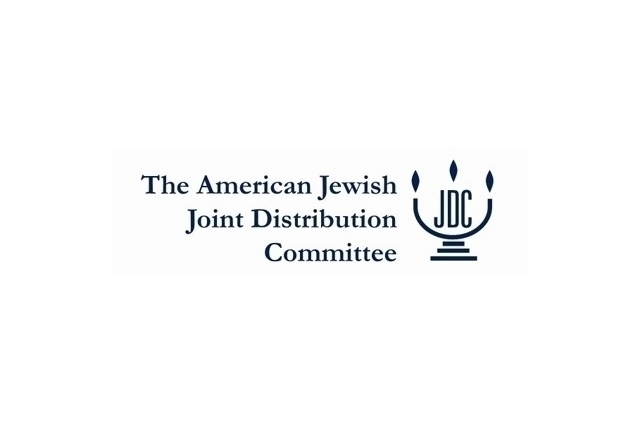American Jewish Joint Distribution Committee in Romania
American Jewish Joint Distribution Committee, in short Joint, was set up in 1914 in New York. Its original mission was to help Jews living in Palestine under Ottoman rule due to the rapidly deteriorating international context

Steliu Lambru, 27.11.2017, 14:27
The Jewish organization subsequently expanded its relief missions to Jews living in other countries in Central and Eastern Europe. Its benefactors were rich Jews based in America, industrialists, legal experts, medical doctors and other liberal workers, in additional to various American-Jewish organizations.
Starting 1916, the American Jewish Joint Distribution Committee started making donations to categories of underprivileged people in Romania. The first chairman of the Joint’s Romanian branch was industrialist and philanthropist Adolf Salomon. He was succeeded upon his death in 1920 by doctor Wilhelm Filderman, who chaired the Joint until 1947.
Historian Lya Beniamin talks about the early days of the Committee in Romania, saying that news travelled surprisingly fast at the time: “The Joint was set up in 1916 in Romania. I have to say I was impressed reading news of its foundation in a December 1914 issue of the Israeli Courier, a Jewish paper in Bucharest. I found it interesting to see news travel so fast at a time when the world war was looming on the continent. The Committee’s early activity in Romania in 1916 was directed at helping Jews living in countries involved in the war, where the predicament of the Jewish population and the overall context had significantly worsened. The Joint came to Romania in 1916 because this was the year Romania entered the war”.
The war created such a context where the only aid capable to reach its destination was money. No goods were posted, investments in education were halted and put back for a later point in time.
Historian Natalia Lazar from the Centre for Studying the History of Jews from Romania told us about the Joint’s first philanthropic activities during and after the war: “At first, the Joint helped send money to Romania. In 1917 donations stood at $40,000, a figure that in today’s money would be close to $1 million. Local committees emerged later on, in 1919. The Joint sent representatives to every country in Eastern Europe, so Romania too had a regional chairman. Originally, the assistance arrived to the Jews in Romania via the US Ambassador to Bucharest Charles Vopicka, who was handed the money in person. The Joint send money via the State Department to the Jewish Colonization Association, another important organization based in Petrograd. From there the money reached Ambassador Vopicka, who brought it into Romania and distributed it among the local committees. Since its foundation in 1914 and up to 1921, the Joint provided emergency aid and temporary assistance to the victims of the war”.
After the war, as from 1921, the Joint designed a reconstruction program which consisted in organizing credit cooperatives to help small manufacturers. The reconstruction program was meant to rebuild the houses destroyed by bombardments during the war, as was the case of the town of Cernauti. In the inter-war period, the Joint sent money to Romania for the Ciocanul (Hammer) school in Bucharest, as that professional school was very important to credit cooperatives and children settlements.
Lya Beniamin has referred to the new orientation of the Joint in the inter-war period: “It is worth mentioning there is a certain conception relative to sending aid. It was not a mere philanthropic action, that is giving money to the needy ones. The idea was that the whole Jewish population which needed assistance had to be guided and supported to embrace various productive activities. The aid should not be given to a beggar, 100 or 200 dollars, to survive until tomorrow. A craftsman or a small trader had to receive assistance to restore his source of existence. After the war, this new conception was called re-stratification, that is guiding the Jewish population towards practicing productive professions”.
We have asked Lya Beniamin about the activity of the Joint during the racial law years and during the Holocaust: “The problem is not the racial law, the problem was the war situation. The interdictions were imposed by the Americans rather than the Antonescu regime, in the sense that the American Treasury no longer wanted to send money, for political reasons, to a country engaged in a war against the US, fighting alongside Germany. During that period of time, the aid was sent through the Red Cross representation in Romania. When deportations started in Transdniester, the main problem during the Holocaust was, particularly in a first stage, assisting the Jews who had been deported there and who were living in complete misery. At first, the Antonescu regime banned or rendered extremely difficult all efforts to send aid to Transdniester. In the end, some aid reached Transdniester, too. Furthermore, international representatives of the Red Cross were allowed to go to Transdniester and to visit the camps and ghettoes there, and to take care of the assistance in medicines, money and foodstuffs.”
According to documents, some 100,000 people benefited from the support of the Joint in the inter-war period, but they ceased receiving it in 1949, when the organisation was outlawed by the new communist regime. But after the end of WWII, the Joint got involved in the effort of recovering the victims of the Holocaust, of helping them reintegrate and emigrate from Romania to Israel and other countries.





























